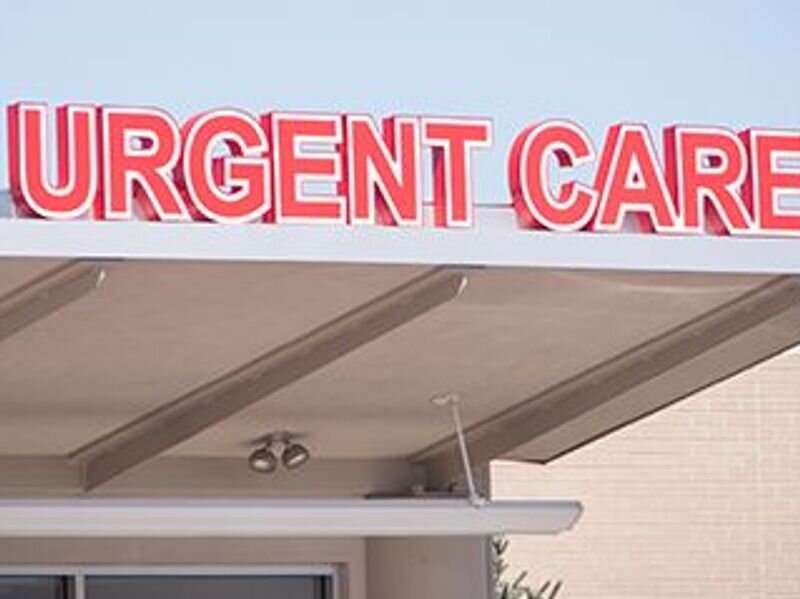Urgent care or the ER? Which should you choose?

(HealthDay)—Say you twist your ankle playing catch with your kids. Or maybe your daughter has a rash that's spreading. Do you visit urgent care or the hospital emergency department?
Many cases of injury or illness can be handled at an urgent care clinic rather than a hospital emergency department, an expert says.
"Urgent care is a good starting point, especially when you can't see your primary care provider on the same day,'' said Mary Dixon, a certified registered nurse practitioner at Penn State Health Carlisle Outpatient Center.
"We can do an evaluation and provide treatment and, if necessary, refer patients to specialty services," she explained in a Penn State Health news release.
"We deal with a lot of minor sprains and simple fractures—we can do an X-ray and stabilize a fracture with splinting,'' Dixon said. "We may see a lot of slip and fall injuries in the winter, as well as colds and respiratory ailments. People also frequently come to us for insect bites, hives, ear pain, rashes, urinary tract symptoms and headaches.''
Health providers at urgent care facilities write prescriptions ranging from antibiotics to topical creams, and consult with doctors when necessary.
Going to urgent care can also save time and money.
"Typically, in urgent care, we deal with one complaint, and we try to keep our visits to 15 minutes,'' Dixon said, noting a typical emergency room wait for a non-life-threatening problem is easily an hour or more.
Also, most health insurance plans charge more out-of-pocket for emergency room visits than for an urgent care visit.
"Sometimes I think urgent care sounds a little misleading,'' Dixon said. "Sometimes people associate that with an emergency, but urgent care is for convenient care for common issues that do not require in-depth evaluation.''
But she emphasized that major medical emergencies require a trip to the emergency department. These include:
- Chest pain, which could be a sign of a heart attack
- Severe abdominal pain and/or vomiting blood
- Trouble breathing
- Fever above 102.5 degrees
- Major head injuries
- Potential stroke symptoms, such as a sudden change in mental status, weakness and difficulty speaking and thinking
- Overdoses
- Suicidal behavior
- Pregnancy complications
- Physical or sexual assaults or abuse
- Deep wounds or compound fractures, where a bone has pierced the skin.
More information: The American College of Emergency Physicians has more on urgent care vs. emergency care.
Copyright © 2021 HealthDay. All rights reserved.




















